Hyundai i30 vs Lexus NX – Differences & prices compared
Compare performance, boot space, consumption and price in one view.
Find out now: which car is the better choice for you – Hyundai i30 or Lexus NX?
The Hyundai i30 (Hatchback) comes with a Petrol or Petrol MHEV engine and Manuel or Automatic transmission. In comparison, the Lexus NX (SUV) features a Full Hybrid or Plugin Hybrid engine with Automatic transmission.
When it comes to boot capacity, the Hyundai i30 offers 395 L, while the Lexus NX provides 545 L – depending on how much space you need. If you’re looking for more power, decide whether the 140 HP of the Hyundai i30 or the 309 HP of the Lexus NX suits your needs better.
In terms of consumption, the values are 5.70 L per 100 km for the Hyundai i30, and 1 L for the Lexus NX.
Price-wise, the Hyundai i30 starts at 24000 £, while the Lexus NX is available from 45200 £. Compare all the details and find out which model fits your lifestyle best!
Hyundai i30
The Hyundai i30 stands out in the hatchback segment with its sleek design and modern features. It offers a comfortable ride with a well-crafted interior that caters to both driver and passengers. With its emphasis on safety and technology, the i30 provides a balanced driving experience suitable for urban and suburban environments.
details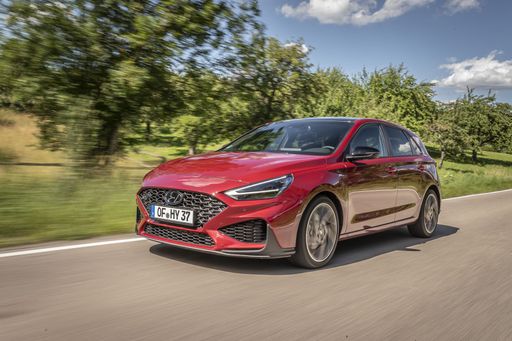 @ hyundai.news
@ hyundai.news
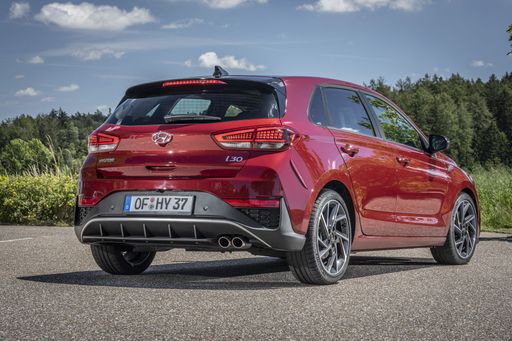 @ hyundai.news
@ hyundai.news
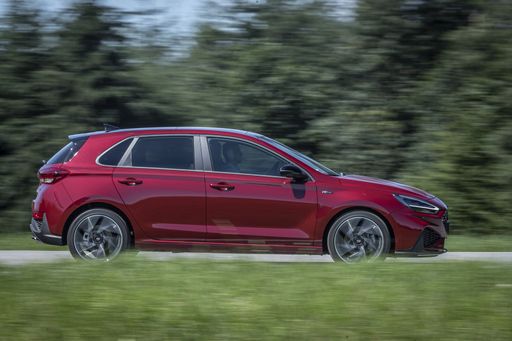 @ hyundai.news
@ hyundai.news
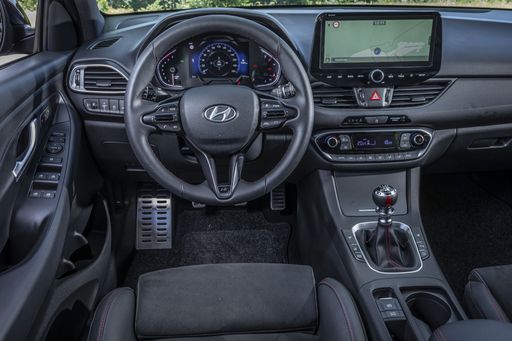 @ hyundai.news
@ hyundai.news
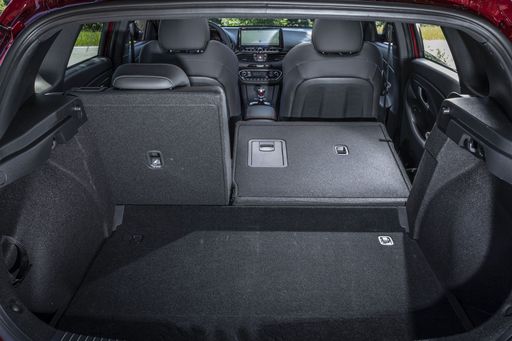 @ hyundai.news
@ hyundai.news
Lexus NX
The Lexus NX embodies a sophisticated blend of striking design and luxurious comfort, providing an exceptional driving experience. Its hybrid powertrain offers seamless performance, ensuring both efficiency and a smooth ride. Inside, high-quality materials and innovative technology create an atmosphere of modern elegance and convenience.
details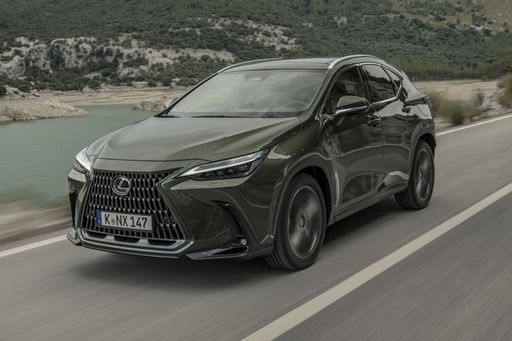 @ toyota-media.de
@ toyota-media.de
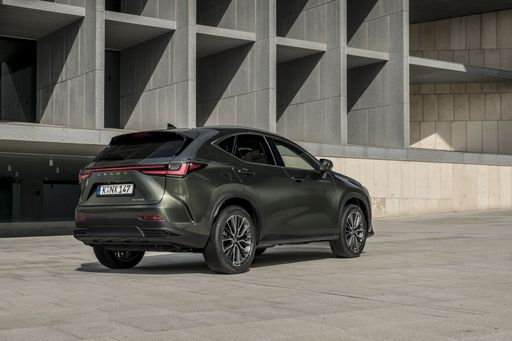 @ toyota-media.de
@ toyota-media.de
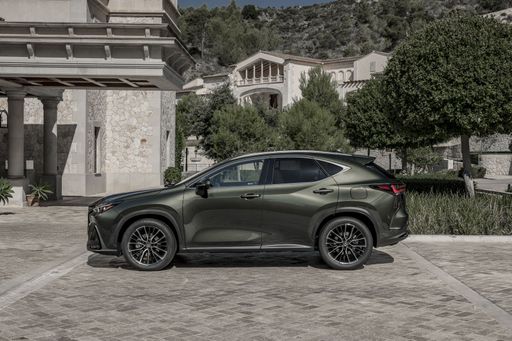 @ toyota-media.de
@ toyota-media.de
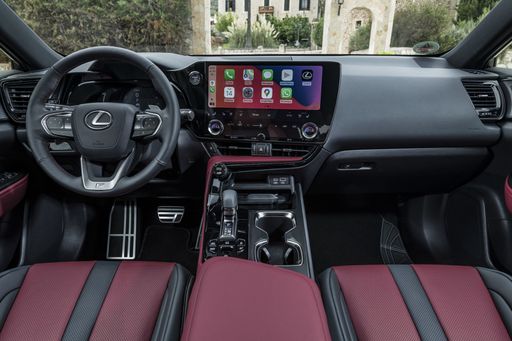 @ toyota-media.de
@ toyota-media.de
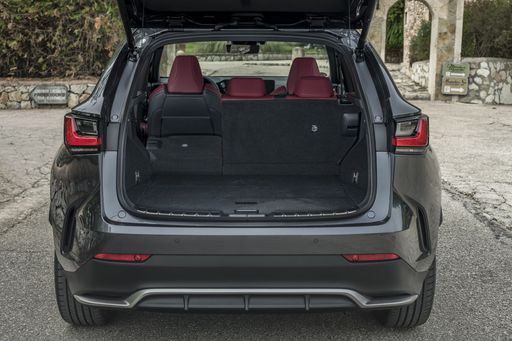 @ toyota-media.de
@ toyota-media.de

|

|
|
|
|
Costs and Consumption |
|
|---|---|
|
Price
24000 - 29300 £
|
Price
45200 - 63400 £
|
|
Consumption L/100km
5.7 - 6 L
|
Consumption L/100km
1 - 6 L
|
|
Consumption kWh/100km
-
|
Consumption kWh/100km
-
|
|
Electric Range
-
|
Electric Range
68 km
|
|
Battery Capacity
-
|
Battery Capacity
-
|
|
co2
130 - 136 g/km
|
co2
22 - 135 g/km
|
|
Fuel tank capacity
50 L
|
Fuel tank capacity
55 L
|
Dimensions and Body |
|
|---|---|
|
Body Type
Hatchback
|
Body Type
SUV
|
|
Seats
5
|
Seats
5
|
|
Doors
5
|
Doors
5
|
|
Curb weight
1291 - 1407 kg
|
Curb weight
1805 - 2065 kg
|
|
Trunk capacity
395 L
|
Trunk capacity
545 L
|
|
Length
4340 mm
|
Length
4660 mm
|
|
Width
1795 mm
|
Width
1865 mm
|
|
Height
1455 mm
|
Height
1670 mm
|
|
Payload
463 - 509 kg
|
Payload
475 - 515 kg
|
Engine and Performance |
|
|---|---|
|
Engine Type
Petrol, Petrol MHEV
|
Engine Type
Full Hybrid, Plugin Hybrid
|
|
Transmission
Manuel, Automatic
|
Transmission
Automatic
|
|
Transmission Detail
Manual Gearbox, Dual-Clutch Automatic
|
Transmission Detail
-
|
|
Drive Type
Front-Wheel Drive
|
Drive Type
All-Wheel Drive, Front-Wheel Drive
|
|
Power HP
100 - 140 HP
|
Power HP
244 - 309 HP
|
|
Acceleration 0-100km/h
9.6 - 13.1 s
|
Acceleration 0-100km/h
6.3 - 8.7 s
|
|
Max Speed
178 - 197 km/h
|
Max Speed
200 km/h
|
|
Torque
172 - 253 Nm
|
Torque
-
|
|
Number of Cylinders
3 - 4
|
Number of Cylinders
4
|
|
Power kW
74 - 103 kW
|
Power kW
179 - 227 kW
|
|
Engine capacity
998 - 1482 cm3
|
Engine capacity
2487 cm3
|
General |
|
|---|---|
|
Model Year
2024
|
Model Year
2024
|
|
CO2 Efficiency Class
D, E
|
CO2 Efficiency Class
D, B
|
|
Brand
Hyundai
|
Brand
Lexus
|
Hyundai i30
Introducing the Hyundai i30: A Blend of Performance and Innovation
The Hyundai i30 continues to impress the automotive world with its fine balance of performance, efficiency, and cutting-edge technology. As a quintessential hatchback, the i30 caters to a diverse range of drivers, offering a remarkable driving experience through its impressive powertrains and compact yet stylish design.
Dynamic Performance Options
At the heart of the Hyundai i30 lies a variety of engine choices designed to suit different driving preferences. The power output ranges from 100 PS to 280 PS, allowing drivers to choose an i30 that perfectly matches their performance needs. Whether you're inclined towards the spirited drive of the N Performance variants or prefer the efficiency of the mild hybrid versions, there’s a powertrain tailored for you.
Innovative Hybrid Technology
For those seeking enhanced fuel efficiency without compromising on power, the i30’s 48V mild-hybrid system offers a compelling option. Available with both manual and automatic transmissions, this innovative technology provides an ideal balance, reducing emissions and improving fuel consumption, with an impressive average of just 5.7 L/100km.
Sophisticated Design and Features
The Hyundai i30’s sleek design is complemented by thoughtful interior features that elevate the driving experience. With a boot space ranging from 395 to 450 litres, this hatchback ensures ample room for all your luggage needs. Furthermore, the car's aesthetic appeal is matched by its practical ergonomic layout, catering to both style enthusiasts and those seeking functionality.
Advanced Safety and Technology
The i30 is equipped with an array of advanced safety features, enhancing driver confidence and ensuring passenger safety. Its cutting-edge safety suite includes lane-keeping assist, forward collision warning, and adaptive cruise control. Additionally, the i30 offers a modern infotainment system, designed to keep you connected and entertained on every journey.
Conclusion: A Versatile Choice for Modern Drivers
The Hyundai i30 is more than just a hatchback; it’s a remarkable amalgamation of power, efficiency, and modern technology. Whether you're enticed by the high-performance models or the eco-friendly mild-hybrid variants, the i30 stands out as a versatile choice that meets the demands of today’s discerning drivers.
Lexus NX
An Introduction to the Lexus NX: A Technological Marvel
The Lexus NX, a stunning SUV, has made a name for itself in the competitive automotive market with its blend of striking design, advanced technology, and impressive performance. From hybrid innovation to state-of-the-art features, the NX line-up continues to reflect Lexus's commitment to luxury and efficiency.
Powertrain Innovation: Hybrid Technology at Its Best
One of the standout features of the Lexus NX is its hybrid drivetrain. Offering both full-hybrid and plug-in hybrid models, the NX showcases Lexus's ongoing commitment to reducing emissions while maintaining performance. The full-hybrid variant boasts 244 PS, combining efficiency with dynamic driving experience. Alternatively, the plug-in hybrid model provides a total of 309 PS and an economical fuel consumption rate of just 1 L/100km, with an electric-only range of up to 68 km, perfect for emission-free urban commutes.
Performance Specs: Speed and Comfort Combined
The Lexus NX doesn't compromise on performance. With a top speed of 200 km/h, it accelerates from 0 to 100 km/h in a brisk 6.3 to 8.7 seconds, depending on the model. The SUV maintains a respectable and eco-friendly fuel consumption range of 1 to 6 L/100km, emphasising its capability as both a powerful road vehicle and an environmentally conscious choice.
Design and Dimensions: A Perfect Blend of Space and Style
Measuring 4660 mm in length, 1865 mm in width, and 1670 mm in height, the Lexus NX offers a spacious and comfortable ride without compromising on style. The interior provides ample space with a generous boot capacity of 545 L, perfect for those long journeys with family or friends.
Advanced Features: Luxury and Safety at the Forefront
Lexus prioritises safety and luxury, evident in the NX's comprehensive array of features. Equipped with the latest CVT gearbox, the NX ensures a smooth and efficient ride. The adaptive front-lighting system, pre-collision system, and lane departure alert are just a few of the advanced safety features available, providing peace of mind on every journey.
Efficiency and Affordability: Balancing Cost and Value
The Lexus NX is not only a powerhouse of luxury and efficiency but also an economically viable option. With CO2 emissions ranging from 22 to 135 g/km, the NX models fall into favourable efficiency classes (D to B), allowing potential savings in environmental taxes. Furthermore, its monthly running costs are estimated between €1,330 and €1,631, offering excellent value for such an advanced vehicle.
Conclusion: The Lexus NX - Where Innovation Meets Elegance
The Lexus NX proves to be a strong contender in the premium SUV segment, showcasing a compelling mix of innovation, performance, and luxury. Its advanced hybrid technologies, sleek design, and spacious interior make it an attractive option for those seeking a vehicle that aligns with both their environmental consciousness and their desire for luxury. Lexus continues to set a high benchmark in the automotive industry, making the NX a worthy choice for modern drivers.
Which drive types are available for the Hyundai i30?
Available as .
The prices and data displayed are estimates based on German list prices and may vary by country. This information is not legally binding.
